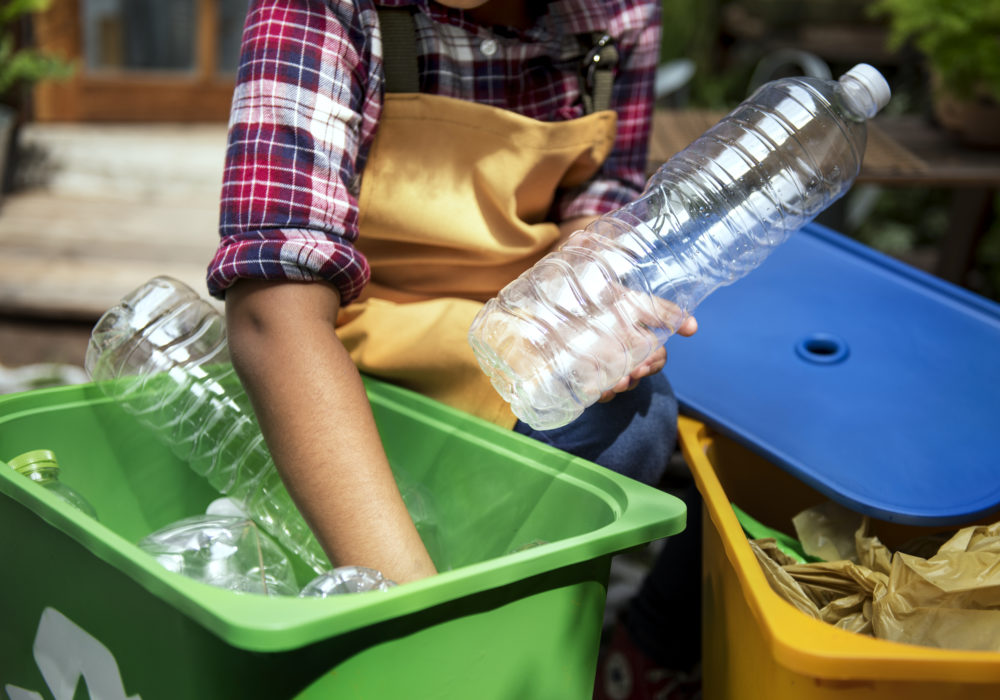
We all want to do our bit for the planet, with improving recycling rates high on the agenda of most Local Authorities. But inspiring people to sort out their rubbish and give more items a second lease of life is easier said than done.
Merely sending out informational leaflets isn’t always enough, and a more creative approach is needed to change people’s attitudes to waste management. Here are six examples of innovative ways in which council teams have tackled the issue in their neighbourhood, in order to raise the bar on recycling:
1. Spread the word, slim the bin
Education is an important part of the recycling movement, as many families throw packaging into black bags simply because they aren’t sure what materials can be reused.
In a bid to increase recycling rates, Warwickshire County Council launched a ‘slim your bin’ campaign in 2017, giving local residents the opportunity to sign up for weekly email tips.
Any household adopting these new eco-friendly behaviours has the opportunity to earn points, and the family with the most points each month receives a £20 voucher. At the end of the year, the council also makes a donation to a charitable project of the residents’ choice, with Myton Hospice and Parkinson’s UK among the beneficiaries to date.
2. Sticking to the rules
Like Warwickshire County Council, Ashford Borough Council has also come up with an interesting idea to cut the amount of household rubbish placed into the wrong bin.
From September 2019, if residents in the area try to recycle items incorrectly, causing ‘major’ contamination, refuse collection teams will put a sticker on their bin. The sticker informs them what the problem is, and their bin will not be collected until the non-recyclable items are removed.
3. Taking recycling to remote regions
Another challenge for many Local Authorities is increasing recycling rates in rural or remote areas. Some communities are too sparsely populated to merit their own permanent recycling centre – but that doesn’t mean they can’t be environmentally conscious.
Scottish Borders Council has taken direct action to mobilise isolated settlements, by piloting mobile recycling units. Its research found that 70% of black bag waste in these areas could have been recycled, and waste management teams have identified five regions that the mobile units can service if the initial pilot proves successful.
4. Making a meal of it
Food waste is a massive challenge for many waste management teams, as not all councils have services in place to help households recycle perishable goods. Belfast City Council has circumnavigated this issue by coming up with a creative way to help families cut down on their food waste.
The council asked chefs from some of the capital’s top hotels and restaurants to develop delicious recipes using seasonal products and simple ingredients that generate minimal waste, along with top tips for making food go further.
The Un-EAT-en cookbook is free to download, in the hope that households will start cooking more from scratch – rather than relying on heavily packaged convenience foods.
5. Free to a good home
Building a recycling culture involves more than getting people to put cartons in the right bin; it’s a shift in attitude, to get people thinking about how items can be passed on and reused.
Off the back of national campaigns like Oxfam’s second hand September, councils across the country are proactively encouraging individuals and organisations to choose pre-loved goods.
For example, when Brighton & Hove City Council moved premises in 2016, it appointed its first-ever Reuse Manager to work with local community groups, charities and organisation to rehome all its unwanted furniture. 10,000 square feet of office space was cleared, with 30 tonnes of furniture donated to 300 charities, 50 schools and the Royal Sussex County Hospital.
In another Local Authority initiative, last January Hackney Council created a toy sharing scheme in association with Forest Recycling Project, encouraging families to donate unwanted playthings after their children had been given new toys for Christmas.
Over 1,500 toys – worth more than £5,000 in total – were distributed to local charities and educational centres off the back of the campaign.
6. Talk the talk
Even in communities where recycling has a good uptake, there is still work to be done on awareness of specific schemes – such as recycling electronics.
Basildon Council tackled this issue head-on in 2018 when it launched a ‘talking toaster’ campaign, to highlight the fact that waste electrical and electronic equipment can be recycled. It released a humorous video of an old toaster bemoaning being replaced with a shinier, newer product, before showing its journey to be donated, repaired and purchased again second hand.
The video prompted a 97% increase in unwanted electrical items being recycled in the borough, and it was also shortlisted for two national recycling awards.
Match waste management to marketing
Taking a creative approach can make a massive difference to how many households recycle unwanted items, but encouraging uptake is only half the battle won. Local Authorities need a good municipal waste management system in place to cope with increased demand, to ensure that recyclable items are dealt with cost-effectively.
Whitespace is working with over 100 council waste management teams across the UK to improve the way their domestic waste and recycling collections are managed. Our centralised software streamlines the collection and disposal process, ensuring that both recycled goods and domestic rubbish are picked up and transported to the most appropriate location efficiently and easily. Book a free demo today.
